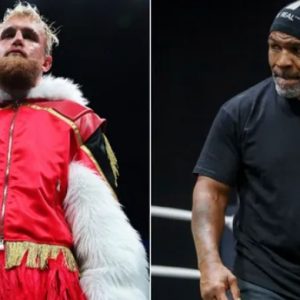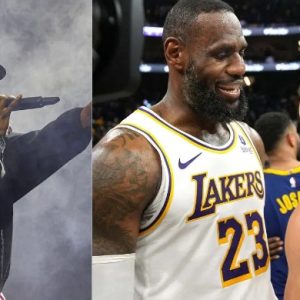The various iterations of The Dick Cavett Show, especially the late-night ABC show which ran from 1969-1975, have been a deep resource for Cavett and director Robert Bader to look back on some of the serious issues that riled the country in the late ’60s and early ’70s. First they collaborated on how the show’s often influential guests and intellectual discourse contributed to the discussion surrounding the Vietnam War, then they did another documentary about the show’s extensive coverage of Watergate. Now, the two of them examine the unlikely friendship between Cavett and one of his most frequent guests: boxing legend Muhammad Ali.

ALI & CAVETT: THE TALE OF THE TAPES: STREAM IT OR SKIP IT?
The Gist: Ali was on Cavett’s show over a dozen times between 1969 and his last fight in 1981. When he first appeared in ’69, he was in the middle of a period where his heavyweight championship was stripped from him and he was threatened with prison over his refusal to enter the military draft. The first third of Ali & Cavett: The Tale Of The Tapes goes over the steps that led the former Cassius Clay to that point, from his association with the Nation of Islam, and how Elijah Mohammed and Malcolm X both tried to get Ali to align with each’s faction within NOI. Through interviews with Al Sharpton, Juan Williams, Larry Merchant and others — and of course, Cavett — we go in-depth into Ali’s state of mind then, who was influencing him, and how Cavett shockingly thought that the champ, who he had already established a strong rapport with, was using his nimble verbal skills to ramble on about someone else’s agenda.
But once Ali’s boxing license was restored by the New York Supreme Court in 1970 (he was still appealing his federal conviction, which wouldn’t be cleared until a year later), Ali’s appearances on Cavett’s show were more of a balance of boxing talk and talk about the always touchy racial issues on which Ali had strong opinions. We see clips of Ali talking about all sorts of stuff, not the least of which trash talking his biggest rival, Joe Frazier. We even see the infamous appearance before the first Ali-Frazier fight where the two of them almost come to blows, then gang up on Cavett and lift him out of his chair.
From Ali’s comeback, where he regained the heavyweight crown after defeating a young, stronger George Foreman, the show takes a turn. We see light moments, like Cavett at Ali’s woodland training camp in Pennsylvania, to darker moments, like after Ali lost the title to Leon Spinks in 1978. Cavett and the other experts all wonder if his later fights, and the fact that he got hit harder during those than during his younger days, is what led to the Parkinson’s syndrome that eventually led to his death in 2016.
What Movies Will It Remind You Of?: The film covers a lot of the same ground as 2019’s HBO doc What’s My Name: Muhammad Ali, though it does concentrate more on the years 1964-1981. There’s definitely more of an examination on his relationships with Elijah Mohammed, Malcolm X, Louis Farrakhan and others in the Nation of Islam. It’s likely because Cavett challenged him on the racial diatribes Ali often went on in those years, as well as let him talk about why he objected to going to Vietnam.
Performance Worth Watching: Ali’s life is fascinating to us, and it’s always fascinating to show how he transformed from the young Ali — fast-talking, witty, unafraid to speak his mind, but considered by much of white America to be dangerous and subversive — to the thirty-something Ali, who had slowed down but was still witty and, more importantly, a pop culture icon.

Memorable Dialogue: “Sometimes he almost seemed like a brother to me,” says Cavett, who once wrote that at times he considered Ali his best friend.
Our Take: What surprised me the most about Ali & Cavett: The Tale Of The Tapes is that the first third of the film has very little Cavett in it. For a film that is promoting itself as looking at Ali’s career through his appearances on Cavett’s various shows, it felt like a curious choice that we would be going over the period of time before Cavett’s show started in such depth (they did meet when Cavett was a writer for The Jerry Lewis Show in the mid-’60s, but their friendship started in earnest when Ali started going on the shows Cavett hosted).
In this case, an e-mail response from Bader, after I interviewed Cavett, brought some light to the choice: “I felt the audience would be confused without the background on Ali’s early interest and involvement with the Nation of Islam if my story began with his first Cavett interviews. So many of the critical events in Ali’s story occurred just before Dick got his show. But Ali was appearing on those early Cavett shows in response to the public reaction to many of those earlier events.”
This makes sense; since Ali’s first appearances on Cavett’s shows were because he was making news during his time away from the ring, setting up that story for the uninitiated was a smart idea. Even for someone who had a decent knowledge of that period in Ali’s life and career, some of what was discussed, especially the details of NOI’s internecine conflict, was new information for me. But by the half-hour mark I was really looking for what I came for, which was Cavett and Ali bantering over any and all topics.
Once that part kicked in, it was fascinating to watch, especially as we see Ali’s icon status kick into high gear after the first Frazier fight. It was also fascinating to see those first signs that Ali might have stayed in the ring too long, even after he captured the heavyweight crown for the third time in the Spinks rematch. And what was the most fascinating was the stories Cavett told about the time Ali stayed over his house in Montauk, and the overall picture of how the two of them bonded to where they became more than just host and guest.
Our Call: STREAM IT. While we think Ali & Cavett: The Tale Of The Tapes could have given the context behind Ali’s first Cavett appearances a little quicker, it’s still a wonderful look at an unlikely friendship and a bit of insight into Ali’s mindset in the second stage of his boxing career.





